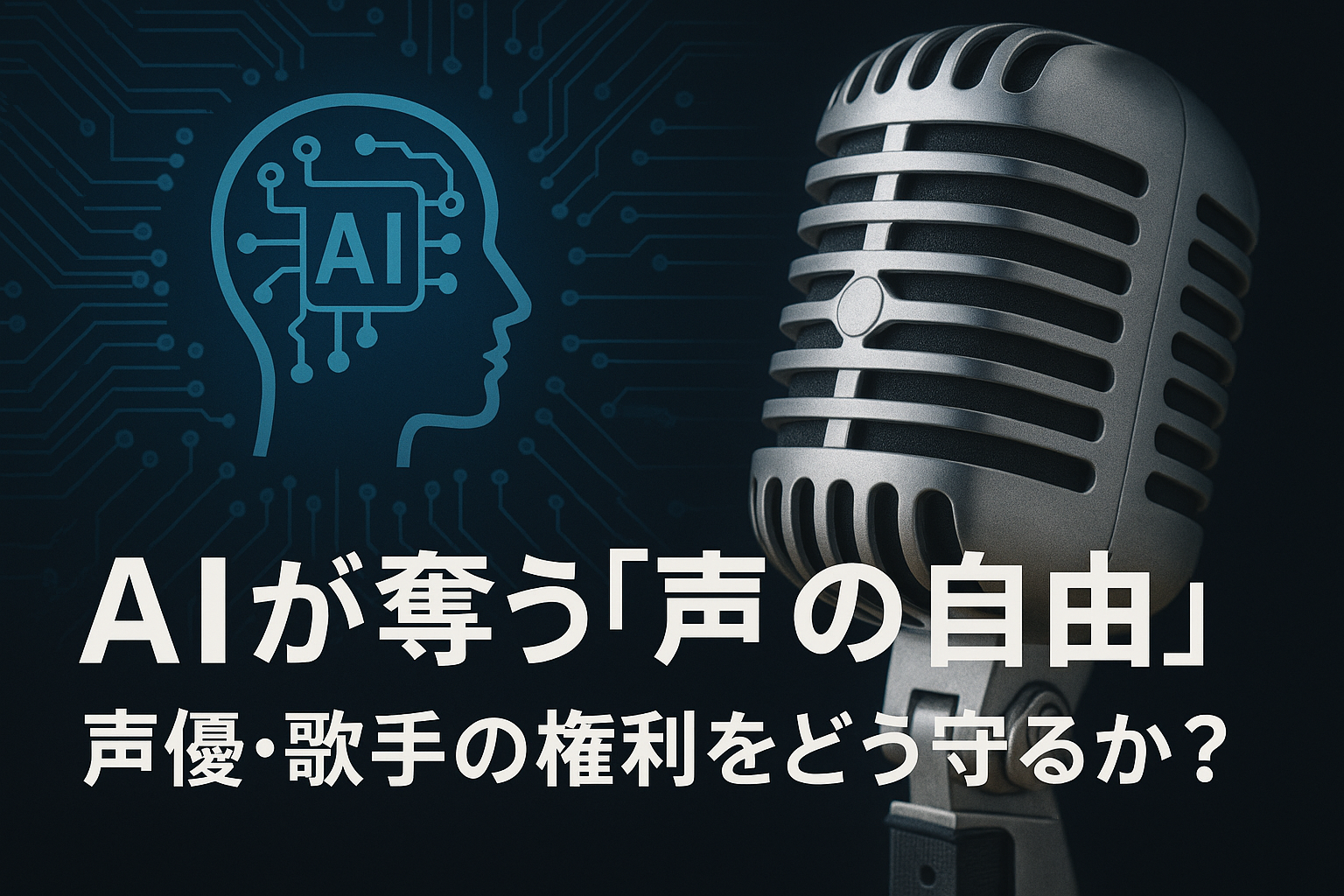With the rapid advancement of AI technology, we are entering an era where not only text generation and image editing, but even “voices” can be mimicked. In particular, the current situation in which the voices of Japanese voice actors and singers are being used without permission to train AI and are then replicated in highly similar audio content flooding the internet presents a serious challenge to the entire entertainment industry. The “right to one’s voice” is now an essential personality right that must be protected, and new rules are urgently needed in this digital age.
Voice as Both “Product” and Identity
For voice actors and singers, their “voice” is a vital asset at the core of their careers. Their acting and singing abilities are honed through years of training and are deeply original expressions of self. When such uniquely personal voices are imitated by AI and used in unrelated contexts, it constitutes not just creative misuse, but a violation of personal rights.
Legal Protections Are Not Keeping Pace
In Japan, the Copyright Act protects expressions such as text and music, but does not clearly protect the “voice” itself. The so-called “right of publicity” that applies to celebrities is also ambiguous when it comes to voices. While the Ministry of Economy, Trade and Industry is exploring countermeasures under the Unfair Competition Prevention Act, there are currently limits to what the law can address, and the legality of such acts remains unclear.
Progress Overseas: The U.S. as a Precedent
In Tennessee, USA, legislation has been passed to protect individuals’ digitally replicated voices. This represents a pioneering legal approach suitable for the age of AI. Japan should look to such initiatives as models and urgently move toward legal reforms.
The Challenge of Distinguishing from Parody and Imitation
In strengthening “voice protection,” we must also ensure that we do not stifle freedom of expression, such as impersonators or parody culture. A balanced legal framework is necessary—one that preserves creative expression while protecting rights holders. Practical solutions may include mandatory labeling of AI-generated content and bans on commercial use without the original speaker’s consent.
A Serious Threat Intertwined with Deepfakes
Unauthorized voice generation is not merely an issue within the realm of entertainment. It is linked to more dangerous phenomena like fake political audio and child exploitation deepfakes, threatening societal trust at its core. As AI-generated content becomes increasingly realistic, the line between real and fake blurs—this is a problem that affects all of us.
Ethics and Law Must Catch Up with Technology
AI development cannot be stopped—but neither should human dignity be sacrificed in its wake. Especially when it comes to the unauthorized mimicry of voices—an intimately personal and sensitive asset—swift action is necessary. Japan must urgently consider legal reforms, including revisions to its Copyright and Unfair Competition laws, to safeguard “voice rights.” Only then can we build a society where the expressive work of voice actors and singers is truly respected and properly valued.

